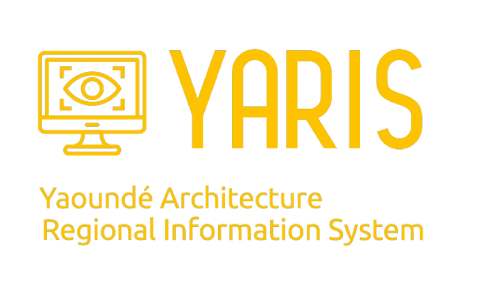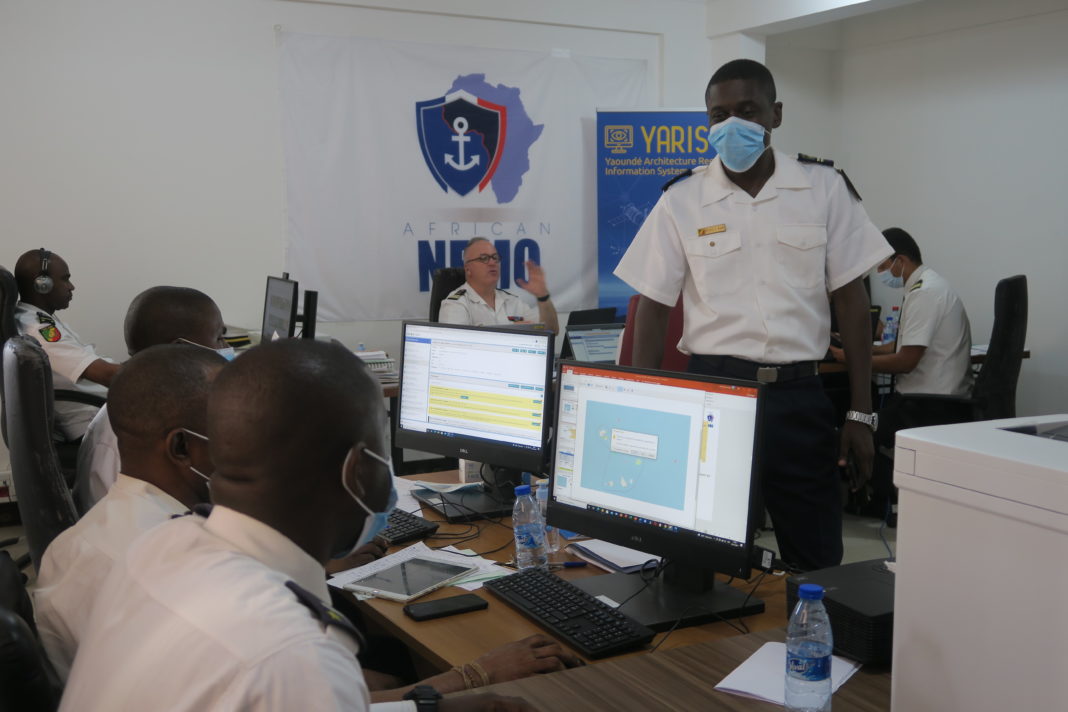The YARIS platform was implemented for the first time on a Gulf of Guinea-wide basis as part of the annual GANO 2021 exercise organised by France, the ICC, CRESMAC and CRESMAO from October 28th to November 7th, 2021.
At the end of GANO 2021, the Gulf of Guinea Chiefs of Naval Staff and the Coast Guard Commanders of the Gulf of Guinea coastal countries endorsed the use of YARIS, encouraging “its continued deployment as an essential information sharing platform”.
A large-scale exercise
GANO 2021 brought together 23 nations: 17 from the Gulf of Guinea and 6 others heavily involved in securing the region (Brazil, United States, France, Italy, Portugal and the United Kingdom). 50 surface units and 9 aircrafts took part in the different sequences. The 2021 edition made it possible to conduct 49 exercises adapted to the challenges of the region with a high level of realism. The themes covered the entire spectrum of maritime safety and security: combating illegal fishing, piracy, illegal trafficking, maritime pollution as well as rescue operations at sea.
The organisers of GANO 21 chose to use YARIS to share information and coordinate operations between units and operational centres during the exercise. The platform was successfully and securely used by around 100 users, sometimes simultaneously from maritime centres and operational assets (ships and aircraft).
Find out more about GANO 2021 here.
A strong mobilisation around YARIS
Beforehand, the GoGIN project deployed 18 members of its team as well as 10 trainers from the Yaoundé architecture centres (YA) to finalize the training of the YA maritime centres on YARIS, and to accompany them in its use during GANO 21.
Units from partner countries (France, Spain, Brazil, Portugal, Italy) invited to the GANO 21 exercise also received remote training on YARIS.
Thus, from 11 to 26 October, several training sessions were held simultaneously in Angola, Liberia, Nigeria, the Democratic Republic of Congo, the MMCC E Zone E (Benin), and remotely for Togo. Personalised mentoring was then given by 16 experts in 13 countries during the exercise, from 27 October to 8 November. At the same time, the GoGIN IT team based in Lisbon (3 experts), as well as the YARIS developers, were on standby to resolve any incident affecting the platform in real time (24/7).
This intensive programme was made possible thanks to the strong involvement of the YARIS trainers, provided by GoGIN and by the YA regional centres (ICC, CRESMAC, CRESMAO): in addition to their perfect mastery of YARIS, these trainers have an excellent knowledge of the operational centres, allowing them to support their teams in integrating YARIS into each specific environment.
In addition, the exercise management team (white cell), including a team of 10 naval personnel from CECLANT, EU CMP, GoGIN, CRESMAO, CRESMAC and a prosecutor, was based at the CRESMAC in Pointe-Noire, from where it piloted GANO 21. Its daily briefing included an analysis of the exercises conducted, but also an analysis of the use of YARIS, thus providing valuable feedback.
Positive Lessons Learnt
The relevance of YARIS as a coordination and information sharing tool for maritime security and safety operations was stressed by the exercise management team during the final wrap-up meeting. In addition, the Chiefs of Naval Staff and Coast Guard Commanders of the countries bordering the Gulf of Guinea who gathered in Pointe-Noire on the margins of GANO for their annual symposium, declared in their final communiqué:
“the Chiefs of Naval Staff and Coast Guard Commanders of the countries bordering the Gulf of Guinea […] Encourage : […]
Naval Staffs to continue the deployment of the YARIS system as an information sharing platform”.
Technically, thanks to the diversity of YARIS users, GANO 21 was able to gather valuable feedback, which will help to improve certain functionalities of the tool for the benefit of its users. In addition to the ergonomic improvements, an evolution of the user profiles, allowing an efficient harmonisation of the operation of the maritime centres, is underway.
Finally, the integration of a prosecutor in the white cell has enabled the successful testing of real-time monitoring of maritime operations by Justice using YARIS to ensure the validity of the legal procedures implemented. This first test will be followed, in coordination with the UNODC, by trials aimed at precisely defining the use of YARIS in strengthening the legal procedures related to operations at sea.
YARIS is already fulfilling its promise as a tool for the sovereignty of the countries bordering the Gulf of Guinea through the coordination of maritime security operations and information sharing. Like any IT tool, the platform can be adapted to new needs for greater efficiency of its users.

